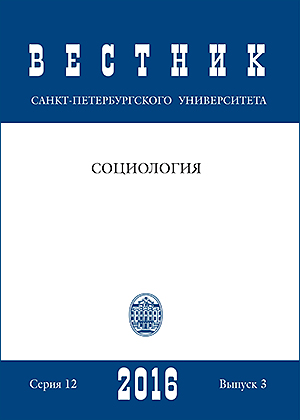Key concepts and approaches in sociological life course studies
DOI:
https://doi.org/10.21638/11701/spbu12.2016.301Abstract
This paper seeks to systemize the core approaches to life course studies, and to compare and operationalize the key working terms used in different traditions of life course studies such as agency, generation, cohort, opportunity structure and period effect. This makes a challenging task, as a stable and conventional conceptual apparatus has not been shaped in life course studies yet. Having analyzed some ‘pressure points’ of the sociological inquiry into life courses, the authors outline a set of recommendations and perspectives relevant for the development of this research field. In particular, they uphold the productivity of synthetic theoretical and empirical models and tools capable of accounting both for the micro- and the macro-factors of life choices and trajectories of individuals and whole generations and cohorts. They show that such models should consider both the consequences of individual efforts and decisions (agency), and the influence of objective external conditions determined by historical, political, social and cultural contexts (opportunity structure). Refs 61.
Keywords:
life course, agency, opportunity structure, generation, cohort, period effect
Downloads
References
References
Downloads
Published
How to Cite
Issue
Section
License
Articles of "Vestnik of Saint Petersburg University. Sociology" are open access distributed under the terms of the License Agreement with Saint Petersburg State University, which permits to the authors unrestricted distribution and self-archiving free of charge.




